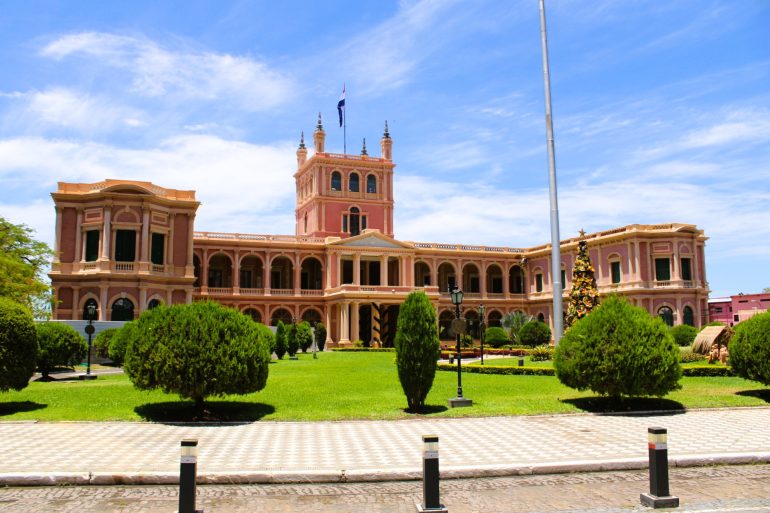Asunción has been ranked the 468th best large city in the world, according to Oxford Economics’ Global Cities Index (GCI), the annual ranking of the top 1000 cities worldwide. While Paraguay’s capital remains in the top half of the list, Asunción dropped 13 positions since last year’s GCI. The Asunción Times dives into the numbers.
What is the Global Cities Index?
The Oxford Economics Global Cities Index is a comprehensive ranking of the world’s 1,000 largest cities, evaluating their performance across five categories: Economics, Human Capital, Quality of Life, Environment, and Governance. Oxford Economics uses 27 indicators, like GDP per capita, population growth, and life expectancy. These metrics help assess a city’s economic strength, demographic trends, and quality of life.
The top five cities are New York, London, Paris, San Jose, and Seattle. Rounding out the top 10 are Melbourne, Sydney, Boston, Tokyo, and San Francisco.
Asunción’s best categories
Asunción ranks above its overall 468th position in two Global Cities Index categories: Human Capital (337th) and Environment (283rd).
Leading cities in Human Capital offer access to, for example, higher education and drive business innovation, fostering a diverse, educated population. Although Ciudad del Este, Paraguay’s second largest city, is a key business hub, Asunción stands as the country’s centre for education and innovation.
The Environment category values cities with abundant trees and greenery, but policy-making is crucial. Asunción, ranked 283rd – its highest individual score – benefits from initiatives like electric buses, which reduce pollution, enhance air quality, and will likely improve its environmental ranking next year.
Asunción’s lower scoring categories
Paraguay’s capital faces challenges in three Global Cities Index categories: economics, quality of life, and governance.
Economics: The Global Cities Index emphasises a city’s economic viability, assessing potential for sustained growth and development. Asunción ranks 533rd in this category, constrained by limited free land, which restricts growth to its existing space. Near to Asunción is Nueva Asunción, formerly Chaco’i, a dynamic development boosting the metropolitan area’s economy. However, as it is not part of the city, it does not improve Asunción’s economic index ranking.
Quality of Life: Cities with top rankings exhibit minimal inequality, longer life expectancy, and a strong sense of community, often in smaller cities. They offer diverse recreational and cultural amenities. Asunción ranks 631st in this category.
Governance: This category reflects political factors, including policy outcomes, public-service delivery, and resident protection and engagement, measured at the national level, giving multiple cities in a country the same score. Asunción ranks 617th in this category.
Setbacks for Asunción
Last year, Asunción ranked 491st in economics, outperforming this year’s 533rd position. Several projects announced, started, or completed in 2023-24 boosted the ranking; projects such as the opening of the Costanera Sur Avenue, in July 2024 described as a resounding affirmation of the changing times Asunción is experiencing in road construction in the city. In 2024, quality of life stood at 607th though, better than 2025’s 631st, and governance was 611th, now at 617th.
While three categories still show room for improvement, two showed progress. Human capital improved from 396th in 2024 to 337th in 2025, a 59-position gain. Environment also advanced, moving from 289th to 283rd, a notable achievement given the Global Cities Index covers only the world’s 1,000 most significant cities.
Santiago, Latin America’s best
For the 2025 Global Cities Index, Chile’s capital, Santiago, leads Latin America at 160th, with a strong 33rd in human capital, but a weaker 533rd in environment, as it is one of the most congested cities in the Americas.
Argentina’s capital Buenos Aires ranks second in Latin America at 192nd, scoring 127th in human capital, but 476th in governance. Mexico City is third at 253rd, with a 69th ranking in human capital, and a 639th position in quality of life.
Asunción’s GCI comparable cities
Asunción ranks 468th in the Global Cities Index. Let us look at the cities immediately ahead, and behind it.
466th: Ulaanbaatar, Mongolia.
467th: Kayseri, Türkiye.
468th: Asunción, Paraguay.
469th: Nanchang, China.
470th: Cebu City, Philippines.
Sizes differ
While these cities rank near Asunción, their sizes differ. Let’s compare cities with populations close to Asunción’s approximately 525,000 inhabitants.
448th: Khota Baru, Malaysia (570,000 inhabitants).
460th: Skopje, North Macedonia (526,000 inhabitants).
468th: Asunción, Paraguay (525,000 inhabitants).
474th: Constantine, Algeria (450,000 inhabitants).
487th: Windhoek, Namibia (464,000 inhabitants).
Conclusion
Though Asunción slipped a few ranks in the Global Cities Index 2025, the city is well-positioned for future success, and could improve its ranking in coming years. With significant investments, the capital is set for growth. What rank do you predict for them in 2026?
Read more: See how Paraguay scores in The Global Peace Index 2025, compiled annually by the Institute for Economics & Peace, ranking 163 countries on peacefulness.


